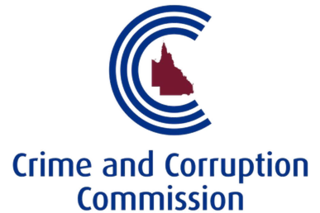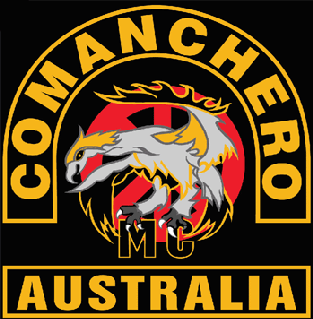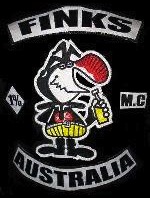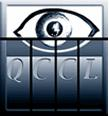
The criminal law of Australia is the body of law in Australia that relates to crime.

The Crime and Corruption Commission (CCC) is an independent Queensland Government entity created to combat and reduce the incidence of major crime and to continuously improve the integrity of, and to reduce the incidence of misconduct in, the Queensland public sector. Formerly the Crime and Misconduct Commission (CMC) 2002–2014. The CCC also has a witness protection function. The commission was established on 1 January 2002, when the former Criminal Justice Commission and the Queensland Crime Commission were merged into a single entity under the name Crime and Misconduct Commission.

Gerald Edward "Tony" Fitzgerald is a former Australian judge, who presided over the Fitzgerald Inquiry. The report from the inquiry led to the resignation of the Premier of Queensland Joh Bjelke-Petersen, and the jailing of several ministers and a police commissioner. He was the youngest person to be appointed as a judge of the Federal Court of Australia.
Organised crime in Australia refers to the activities of various groups of crime families, organised crime syndicates or underworld activities including drug trafficking, contract killing, racketeering and other crimes in Australia.

The Comanchero Motorcycle Club is an outlaw motorcycle gang in Australia and South East Asia. The Comancheros are participants in the United Motorcycle Council of NSW, which convened a conference in 2009 to address legislation aimed against the "bikie" clubs, their poor public image in the wake of several violent clashes and ongoing biker wars, and defusing deadly feuds such as the Comancheros' battles with the Hells Angels. The sincerity of these efforts to defend the battered image of the clubs has been met with skepticism.

The Finks is an Australian outlaw motorcycle club that was formed in Adelaide, Australia, in 1969 and now also has chapters in other states. The name comes from The Wizard of Id cartoon where the peasants, to his dismay, often proclaim, "The King is a fink!". The logo used by the Finks is of Bung, the king's jester. The pants worn by the jester used to differ in colour depending on the state the chapter resides in.
The history of gangs in Australia goes back to the colonial era. Criminal gangs flourished in The Rocks district of Sydney in its early history in the 19th century. The Rocks Push was a notorious larrikin gang which dominated the area from the 1800s to the end of the 1900s. The gang was engaged in running warfare with other larrikin gangs of the time such as the Straw Hat Push, the Glebe Push, the Argyle Cut Push, the Forty Thieves from Surry Hills, and the Gibb Street Mob.

Lesbian, gay, bisexual, and transgender (LGBT) rights in Queensland have advanced significantly from the late 20th century onwards, in line with progress on LGBT rights in Australia nationally. Private consensual sex between men has been legal in the state since 1991, with lesbian sexual acts never criminalised. The age of consent was equalised to 16 years for all sexual acts in 2016. Sexuality and gender identity are protected attributes under both state and federal anti-discrimination laws. Same-sex couples may marry under Australian law, enter into a civil partnership under state law or live together in an unregistered de facto relationship. Same-sex couples may become parents through adoption, foster care, altruistic surrogacy and, for lesbian couples, IVF. In 2020, Queensland became the first jurisdiction within Australia to pass a law banning conversion therapy, with a maximum penalty of 18 months imprisonment and fines. State anti-discrimination protections for sexuality and gender identity were introduced in 2002 and in 2017 the gay panic defence was abolished from the criminal law. Transgender and intersex Queenslanders are able to update their government records and birth certificate, with the formal repeal of both the "divorce requirements" in 2018 and then the "surgery requirements" in 2023.

The Rebels Motorcycle Club is an outlaw motorcycle club. At its peak in Australia, it had around 70 chapters and over 1,000 members and associates nationwide, making it the largest club in the country at the time. It was founded by Clint Jacks in Brisbane, Queensland in 1969 and was originally named the "Confederates". Their insignia is a Confederate flag with a cap-wearing skull and 1% patch in the centre. The Australian government and law enforcement consider the Rebels to be a criminal organisation, but the club claims to be a group of motorcycle enthusiasts rather than gangsters.

The Queensland Council for Civil Liberties (QCCL) is a voluntary organisation in Australia concerned with the protection of individual rights and civil liberties. It was founded in 1966 in order "to protect and promote the human rights and freedoms of Queensland citizens." The QCCL is regularly asked by the Government to make submissions to committees, which is how bills are made in Parliament. These submissions cover issues such as closed circuit television, abortion law reform, sentencing issues in our court system and changes to legislation already in place, which are called amendments.
The following lists events that happened during 2013 in Australia.
Vicious Lawless Association Disestablishment Act 2013 was an act of the Parliament of Queensland, enacted to "severely punish members of criminal organisations that commit serious offences". The act aimed to "come down harshly on outlaw motorcycle gangs and their members" and was one of three passed in the same session on 16 October 2013, going into effect immediately. The associated acts enacted on the same date were the Criminal Law Amendment Act 2013 and the Tattoo Parlours Act 2013.
Criminal Law Amendment Act 2013, an act of the Parliament of Queensland, aims to combat "illegal activities of criminal gangs, including criminal [motorcycle] gangs," that is, significant types of organised crime in Queensland. The act was passed on 16 October 2013, and as of 17 October 2013, the Attorney-General of Queensland had indicated that the law had received Royal Assent and was in force. In 2016 it was repealed as part of the introduction of the Serious and Organised Crime Amendment Bill .

The Coffin Cheaters are an international outlaw motorcycle club that was formed in Perth, Western Australia (WA), in 1970. The Perth-based Coffin Cheaters amalgamated in 1999 with a previously unrelated club in Victoria called Coffin Cheaters, and later "patched over" two Norwegian gangs, Forbidden Few MC and Wizard MC, in 2004 and 2005 respectively. The Coffin Cheaters were the first Australian gang to expand internationally.
Timothy Francis Carmody is an Australian judge who was the Chief Justice of Queensland between 8 July 2014 and 1 July 2015. His previous roles include work as a police officer, barrister, Queensland Crime Commissioner, Family Court of Australia judge, and Chief Magistrate of the Magistrates Court of Queensland. He also presided over the 2013 Child Protection Commission of Inquiry.
The Mobshitters Motorcycle Club, is a "one-percenter" outlaw motorcycle club in Australia with around four chapters.
Notorious is a former gang that was based in Sydney, Australia. They claimed to be an outlaw motorcycle club; however, not all members ride motorcycles. A large percentage of its membership consisted of petty criminals, with no real history of bikers among their ranks. Its emblem features a skull with a turban brandishing twin pistols and the words "Original Gangster" beneath it, along with the motto "Only the dead see the end of war". Labeled as one of Australia's most dangerous gangs, they had been feuding with larger and well-known motorcycle gangs including the Hells Angels and the Bandidos. It was thought that as of March 2012 the gang no longer existed as an organised structure after being dismantled by a police operation arresting key members and with other members choosing to quit the gang life. This served to reinforce claims by established MCs that Notorious wasn’t a genuine club.
The Bandidos Motorcycle Club is classified as a motorcycle gang by law enforcement and intelligence agencies in numerous countries. While the club has denied being a criminal organization, Bandidos members have been convicted of partaking in criminal enterprises including theft, extortion, prostitution, drug trafficking and murder in various host nations.
The Hells Angels Motorcycle Club (HAMC), an international outlaw biker gang, has been involved in multiple crimes, alleged crimes, and violent incidents in Australia. The Hells Angels are legally classified as a criminal organisation in the Australian state of Queensland, and there have been attempts to classify them as such in New South Wales. The Hells Angels have been linked with drug trafficking and production, as well as a host of violent crimes including murder, in Australia.








